Sex Reassignment Surgery (Male to Female) in Malaysia
Search and Compare the Best Clinics and Doctors at the Lowest Prices for Sex Reassignment Surgery (Male to Female) in Malaysia
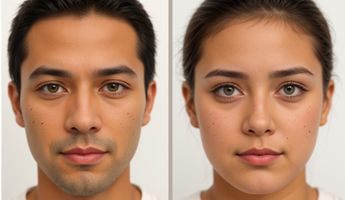
Find the best clinics for Sex Reassignment Surgery (Male to Female) in Malaysia
No pricing info available
Thailand offers the best prices Worldwide
Price: $ 2,473
From 91 verified reviews
Zainuddin D, 07 September 2020
Great private sepcialist hospital
From 132 verified reviews
Derf B. Sibal, 19 September 2020
Staffs are very kind and responsible, great quality service! I’ve been getting a five star service in five years now! Keep up!
- Home
- Malaysia
Compare Before & After Photos of _procedure_photos.phpSex Reassignment Surgery (Male to Female)


Front view


Front view
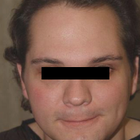

Front view


Front view


Front view
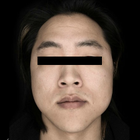
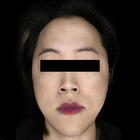
Front view
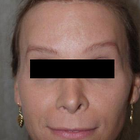
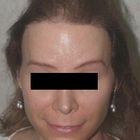
Front view
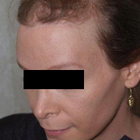

Half-side view

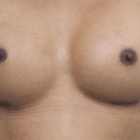
Front view
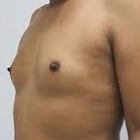

Half-side view
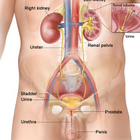
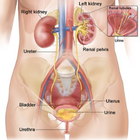
Front view
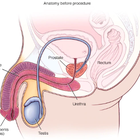
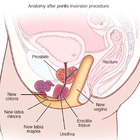
Full-side view
WHY US?
At Medijump, we're making medical easy. You can search, compare, discuss, and book your medical all in one place. We open the door to the best medical providers worldwide, saving you time and energy along the way, and it's all for FREE, no hidden fees, and no price markups guaranteed. So what are you waiting for?

Free

Best Price

Widest Selection

Risk-Free
What you need to know about Sex Reassignment Surgery (Male to Female) in Malaysia

Also known as Gender Reassignment or Sex Change Surgery, Sex Reassignment Surgery (SRS) involves the surgical procedures required to change a person’s sexual characteristics from one gender to the other. The procedure can be used to transition a person from Male to Female and from Female to Male. Male to Female procedure involves reshaping of male genitals to appear and function as female genitalia (including a vaginoplasty), hair removal therapy, hormone replacement, facial feminization surgery, and Breast Augmentation.
Hormone treatment is started one year prior to surgery and continues after, where estrogen helps to reshape the body’s contours and stimulates the growth of labia majora. At least one therapist will be required to assess a patient’s psychological wellbeing before the go-ahead can be given.
The decision to have a breast augmentation should be an informed one that takes into account the potential risks and side effects. You should also have realistic expectations about the results of breast implant surgery to avoid disappointment. Find out about the procedure, the recovery period and any possible complications - ask your doctor or surgeon if you are unsure about anything.
What is the cost of Sex Reassignment Surgery (Male to Female) in Malaysia?
One of the most common inquiries about the Sex Reassignment Surgery (Male to Female) pertains to its expense. The financial burden associated with the procedure may significantly impact one's decision to pursue it. Nonetheless, it's not easy to pinpoint the exact cost, given that numerous factors can influence it. In Malaysia, the total cost of the procedure may fluctuate considerably based on factors like surgeon qualification, the intricacy of the operation, and the span of hospitalization, to name a few.
It's vital to acknowledge that the Sex Reassignment Surgery (Male to Female) is not a one-off event, but entails a succession of treatments and surgeries. Typically, it includes mental health sessions, hormone treatments, and several surgical procedures, all of which add to the general cost. Expenses post-surgery, such as medication, check-up appointments, possible extra surgeries, and supplementary therapies, also require consideration. Furthermore, expenses for travel and lodging in Malaysia should be taken into account. For a precise cost approximation, reach out directly to the clinic.
What does a Sex Reassignment Surgery (Male to Female) Procedure Involve?
Clinically speaking, sex change operation is known as “Genitoplasty Procedure”. This type of procedure can be performed to transition an individual from female to male and from male to female.
It is very important to understand that before you undergo surgery, you will need to first transition. Gender transition is a lengthy process that requires a lot of patience and resilience. In addition, it will be of great help if you have a strong support system to back you up in times of difficulty. It’s also essential that you have a therapist to not just help you with your emotional wellbeing before and after the transition, you will also need a letter of recommendation from your therapist before your surgery.
Transitioning from male to female will involve penectomy (removal of the penis), orchiectomy (removal of testes), vaginoplasty (creation of a vagina), and feminizing genitoplasty (creation of female genitalia). During the surgery, you will be induced with a general anesthetic.
You must start hormone treatment a year prior to your surgery to help reshape your body contours and stimulate the growth of your labia majora. Hormone treatment will be continued even after your sex-change operation.
There are popular MTF sex reassignment surgery techniques which you can choose from, two of which are: sex reassignment surgery with skin graft technique - the most popular SRS procedure, vaginal depth is up to 13-15cm (5-6 in). Another is sex reassignment surgery with colon graft - suitable for people with less scrotal skin and those who prefer a lubricated vagina and is considered as the most expensive procedure.
There are other procedures that you can undergo to fully transition from male to female. These may include; breast implants, facial feminization surgery (FFS), and another procedure would be to minimize the appearance of your Adam’s apple, etc. All procedures to help one fully transition will vary on the individual’s need and of course, their budget.
Prerequisites to Surgery
- Patients must be at least 20 years old or have consent from parents / legal guardians for those between 18 and 20.
- At least 12 months of successful and continuous real-life experience living as a woman.
- At least 12 months of continuous hormonal therapy.
- Must consult with a psychiatrist in the home country and in the country where the procedure will be performed (this can be arranged in your chosen hospital in Malaysia).
- Physically fit for surgery.
Popular MTF Sex Reassignment Surgery (SRS) Techniques
1. SRS with Penile Skin Inversion
- Suitable for patients who do not want a vagina for sexual intercourse, particularly popular with elderly trans people. Depth is around 2-4 cm (1-2 in) and penile hair removal is required prior to surgery.
- Surgery: 2.5 hours
- Hospitalization: 4 nights
- Recovery time in Malaysia: 3-4 weeks
2. SRS with Scrotal Skin Graft
- Scrotal skin is used to create a vaginal depth of up to 13-15 cm (5-6 in), depending on skin quality and quantity (additional depth is possible by using groin skin). This is the most popular SRS procedure.
- Surgery: 4 hours
- Hospitalization: 6 nights
- Recovery time in Malaysia: 3-4 weeks
3. SRS with Sigmoid Colon by Laparoscopic Technique
- The Sigmoid colon is used to create the vagina, allowing for greater depth than what is possible with SRS with a scrotal skin graft. More suited to those with less scrotal skin or those who prefer to have a lubricated vagina, like that of a biological woman. By far the most expensive technique.
- Surgery: 6 hours
- Hospitalization: 7 nights
- Recovery time in Malaysia: 3-4 weeks
How Long Should I Stay in Malaysia for a Sex Reassignment Surgery (Male to Female) Procedure?
A lot of patients prefer having surgery overseas since it is far less expensive and most countries, like Malaysia, have a very high success rate in terms of plastic surgery and gender reassignment surgery.
Recovery after surgery will be a long and painful process. It will also require several follow up procedures as well as constant monitoring so you will have to stay a little bit longer at the hospital until you are ready to be discharged. Generally, allow for a minimum of 3 weeks stay in Malaysia after your surgery, this will allow for the removal of stitches and a few weeks of follow up visits with the surgeon.
What's the Recovery Time for Sex Reassignment Surgery (Male to Female) Procedures in Malaysia?
Smoking before and after the surgery is highly discouraged and avoid smoking for at least two weeks to reduce risks of non-healing.
Most people are able to return to work in about 4-6 weeks after a sex change operation. Furthermore, you can resume strenuous work and exercise after 2 months. It is vital that you strictly follow all medication instructions during your recovery period.
Keep in mind, recuperation incorporates not only physical healing but also emotional rejuvenation. The Sex Reassignment Surgery (Male to Female) implies a noteworthy modification in your way of living and acclimating to an altered body image and social identification requires patience. Mental health guidance proves to be an important element in the healing journey, offering emotional assistance and managing any mental obstacles that come up.
What sort of Aftercare is Required for Sex Reassignment Surgery (Male to Female) Procedures in Malaysia?
Social support is very important before and after the surgery, especially the support that comes from your family and loved ones. You have to be socially and emotionally stable before you undergo the operation. This is why it is required that you have proper counseling to help you with your emotional wellbeing. You have to prepare yourself mentally, before, during and after transition because it can be quite overwhelming and stressful.
It is also important that you maintain a regular check-up with your local doctor to monitor the progress of your healing and avoid complications.
What's the Success Rate of Sex Reassignment Surgery (Male to Female) Procedures in Malaysia?
The success rate for a sex change is very high nowadays, given technological advancements and the greater experience of surgeons. Gender reassignment surgery from male to female has a higher success rate than female to male; this is why more male transgender people opt for a sex change.
However, given the nature and complexities of this type of surgery, you also have to be aware of its complications, for example, there is always a possible risk of infection, severe pain, given the intrusive nature of the surgeries and the potential for blood clotting and scarring.
Possible side effects may also include a decreased sexual sensation and ability to orgasm, fistula (opening between rectum and vagina), narrowing of vagina and hair growth in the vagina from the grafted tissue and the partial death of tissue used to create the new vagina.
Are there Alternatives to Sex Reassignment Surgery (Male to Female) Procedures in Malaysia?
There is no alternative to a sex-change operation for those who want to fully transition their body to match their gender identity. Undergoing gender reassignment surgery will require a lot of time, energy, patience, and of course money. A vast majority of people who experience gender dysphoria never really surgically alter their appearance. Instead, they use creams and hormonal pills to alter their bodily appearance. Estrogens (female hormones) will help develop the breast, widen the hips, help lose facial hair and slightly increase voice pitch.
What Should You Expect Before and After the Procedure
Prior to even undergoing the Sex Reassignment Surgery (Male to Female), those considering this option should be aware that their health care provider will necessitate a thorough evaluation phase. This is implemented to ascertain that the individual is thoroughly prepared, both physically and mentally, for the major changes that the procedure implies. The evaluation generally includes multifaceted assessments of physical and mental health, as well as evaluating certain social circumstances. The objective of these assessments is to gauge the individual's preparedness and appropriateness for the procedure.
In this initial stage, the health care provider implements a cross-disciplinary strategy, typically engaging a collaborative team made up of endocrinologists, psychologists, and surgeons. The aim is the effective provision of required hormone therapy and mental health counseling, alongside addressing any possible health-related issues. This pre-surgery stage also serves to educate and obtain consent, meticulously discussing details such as the implications, possible outcomes, risks, and difficulties related to the Sex Reassignment Surgery (Male to Female). Once approved for surgery, patients should be ready to adhere strictly to all pre-surgery directions to lessen any potential risks and complications during the process.
Post Sex Reassignment Surgery (Male to Female), patients should gear up for a substantial recovery period. This will require dedicated wound maintenance, compliance with prescribed medicines, and following specific physical limitations to assist healing. Depending on the specific nature of the surgery, some patients might also have to adhere to a vaginal dilation plan. This plan necessitates consistent use of dilators to avoid the newly created vagina from becoming narrow during the healing period.
What are Potential Risks of Sex Reassignment Surgery (Male to Female)?
A comprehensive understanding and consideration of prospective hazards and difficulties linked to Sex Reassignment Surgery (Male to Female) is vital before proceeding. As a significant surgical operation, it inherently possesses hazards such as intolerance to anesthesia, surgical infections, hematoma or blood congregating outside the blood vessels, excessive bleeding, or suturing problems. Even with the advancements in modern surgical procedures that help minimize these risks, they cannot be entirely eradicated and, therefore, must be anticipated.
The Sex Reassignment Surgery (Male to Female) encompasses elaborate and multifaceted surgeries like vaginoplasty, which have unique inherent risks. Some of these potential hazards include the possibility of diminished sexual sensitivity, complications in urinary functions, or challenges with the dimensions of the newly formed vagina. Other complications can include issues such as vaginal stenosis, a scenario where the vagina gradually shrinks and lessens over time, or rectovaginal fistula, a rare situation where a connection forms between the rectum and vagina unintentionally. Sometimes, more corrective surgeries might be necessitated due to post-surgical complications.
Popular Procedures to Combine with SRS
- Usually performed in one operation: Orchiectomy to remove the testicles and prevent further production of testosterone, Penectomy to remove the penis and Vaginoplasty to form the female genitalia
- Breast Augmentation to create the breasts, which is usually performed at a later date.
- Facial Feminization Surgery (FFS) and Tracheal Shave to help feminize the facial features and is not necessary for many patients.
- Hair Implants, Hair Removal Therapy, and Continued Hormone Replacement Therapy.
Whilst the information presented here has been accurately sourced and verified by a medical professional for its accuracy, it is still advised to consult with your doctor before pursuing a medical treatment at one of the listed medical providers
No Time?
Tell us what you're looking for and we'll reachout to the top clinics all at once
Enquire Now

Popular Procedures in Malaysia
Prices Start From $69

Prices Start From $208

Prices Start From $1,945

Prices Start From $1,795

Prices Start From $889

Recommended Medical Centers in Malaysia for Sex Reassignment Surgery (Male to Female)

- Interpreter services
- Translation service
- Religious facilities
- Medical records transfer
- Medical travel insurance
- Health insurance coordination
- TV in the room
- Safe in the room
- Phone in the room
- Private rooms for patients available

- Interpreter services
- Translation service
- Religious facilities
- Medical records transfer
- Medical travel insurance
- Health insurance coordination
- TV in the room
- Safe in the room
- Phone in the room
- Private rooms for patients available

- Interpreter services
- Translation service
- Religious facilities
- Medical records transfer
- Medical travel insurance
- Health insurance coordination
- TV in the room
- Safe in the room
- Phone in the room
- Private rooms for patients available

- Interpreter services
- Translation service
- Religious facilities
- Medical records transfer
- Medical travel insurance
- Health insurance coordination
- TV in the room
- Safe in the room
- Phone in the room
- Private rooms for patients available

- Interpreter services
- Translation service
- Religious facilities
- Medical records transfer
- Medical travel insurance
- Health insurance coordination
- TV in the room
- Safe in the room
- Phone in the room
- Private rooms for patients available

- Interpreter services
- Translation service
- Religious facilities
- Medical records transfer
- Medical travel insurance
- Health insurance coordination
- TV in the room
- Safe in the room
- Phone in the room
- Private rooms for patients available

- Interpreter services
- Translation service
- Religious facilities
- Medical records transfer
- Medical travel insurance
- Health insurance coordination
- TV in the room
- Safe in the room
- Phone in the room
- Private rooms for patients available

- Interpreter services
- Translation service
- Religious facilities
- Medical records transfer
- Medical travel insurance
- Health insurance coordination
- TV in the room
- Safe in the room
- Phone in the room
- Private rooms for patients available

- Interpreter services
- Translation service
- Religious facilities
- Medical records transfer
- Medical travel insurance
- Health insurance coordination
- TV in the room
- Safe in the room
- Phone in the room
- Private rooms for patients available

- Interpreter services
- Translation service
- Religious facilities
- Medical records transfer
- Medical travel insurance
- Health insurance coordination
- TV in the room
- Safe in the room
- Phone in the room
- Private rooms for patients available
Sex Reassignment Surgery (Male to Female) in and around Malaysia
About Malaysia
Malaysia is a rich culturally-oriented tourist destination and has a beautiful blend of modernization with a relaxed lifestyle. The population of the country is 32 Million people and Malaysia’s economy ranks in the fourth position in terms of size in Southeast Asia, The electronics, automotive, and construction industries are the biggest industries in Malaysia. The capital is Kuala Lumpur and It is the country’s largest urban area and is the cultural, commercial, and transportation center.
Presently, Malaysia stands as a renowned destination for its exemplary healthcare facilities, offering these high-quality services at notably affordable costs when juxtaposed against other globally recognized medical nations. As per predictions from the Ministry of Finance, the influx of medical tourists is expected to surge beyond 2,000,000 million by 2020. This forecasted growth can be largely attributed to the exemption of taxes imposed on medical bills.
The cities that top the list of medical travel include Kuala Lumpur, Penang, Selangor, Sarawak, and Melaka. Statistics reveal that among the 1.2 million patients who have visited Malaysia for medical care in 2017, 600,000 alone were from Indonesia. The most-sought-after medical procedures are cosmetic surgery, Brazilian butt-lift, and dental surgery. Malaysia is a favorite destination among medical tourists globally for the following reasons.
- The Country possesses a plethora of world-class hospitals that have high-tech medical equipment.
- All treatment plans match very high ethical medical standards.
- The doctors and paramedical staff are well-qualified.
- All procedures will cost you 50% less than other well known medical countries.
- English is a major language and there is good two-way communication between the doctors/medical staff and the patients.
- After an elective surgical operation, many patients will stay on in Malaysia to holiday and recuperate.
Some of the top-rated five-star medical tourism hospitals within the country include Columbia Asia Extended Care Hospital situated in Selangor, Sunway Velocity Medical Centre located in Kuala Lumpur, and Sunway Medical Centre based in Selangor.
Popular parts of Malaysia
Undoubtedly, Malaysia's appeal is immediately evident. The variety of experiences it offers, from bustling cities to idyllic landscapes, entrances visitors. Malaysia's multiculturalism, expressed through unique customs and diverse cuisines, only enhances its charm. This draws tourists from all corners of the globe, leaving them yearning for more. Succinctly, the splendor and diversity of Malaysia make it hard to resist repeated visits.
- Kuala Lumpur has a mix of Malay, Indian, and Chinese influence which gives you a great selection of culinary delights to explore in this city. Interesting sights such as the Petronas Towers which is one of the tallest twin towers in the world. the Perdana Lake Gardens and the Menara KL Tower provide plenty of enjoyable distractions.
- Penang is an island on the west coast and the colonial city of Georgetown was made a UNESCO World Heritage Site and you can enjoy the museums, seaside fort, historic buildings. Penang is considered one of the best places in Southeast Asia to sample delicious street food of all types.
The must-visit cities in Malaysia renowned for their world-class appeal include Malacca, Langkawi, Kuching, Spaden, Johor Bahru, and Taiping.
Weather and Climate in Malaysia
Malaysia is a place that's warm all year round, as being in the tropical region. But since it's close to the ocean, the air can get pretty moist. Still, it's re-assuring to note that it doesn't get too hot, with temperatures usually staying between a pleasant 20°C and 30°C all throughout the year. Those who prefer cooler weather can visit the highlands in Malaysia, where it's generally chillier.
When planning a trip it's important to take into account the best times to visit different parts of the country. If you're eyeing the east coast, try to schedule your visit between March and September; this period is relatively drier than other months. On the other hand, the west coast is better visited from November to August. It's best to avoid the heavy rains which usually occur from September to October. With this information, you can plan to get the best out of your trip to Malaysia.
Getting around in Malaysia
The Country has a well-developed transport network and efficient rail links which makes all travel around the country easy.
It is advisable to book domestic transport well in advance during the main festivals, such as Chinese New Year, Hari Raya Pusa and Hari Raya Haji. Domestic flights and domestic express bus services are often sold out weeks before these festivals. All the major cities in Malaysia have an airport and most budget airlines operate into the country.
In the larger cities of Malaysia, you'll find that transportation is convenient with many kinds of vehicles to choose from. Specifically in Kuala Lumpur, the capital city, there's a broad range of public transportation options to get around. You can hop on buses for an affordable ride or opt for minibusses, locally known as "bas-mini" to navigate through narrower streets.
Furthermore, taxis are easily accessible in Kuala Lumpur, providing a convenient alternative when you prefer more comfort or need to reach a specific destination quickly. If you would like to experience something traditional and fun, pedicabs or "trishaws" as they are commonly known, are present in some parts of the city offering you a unique ride.
Additionally, Kuala Lumpur also boasts a well-connected train network, including rapid transit and commuter rail services, facilitating quick and efficient travel across the city. It's safe to say that in Kuala Lumpur, moving around is smooth and easy, thanks to these diverse means of transportation.
In Malaysian towns and cities, various modes of transport are used, including ferry services. In cities, the rail network is a good way to get around, especially the KL Monorail and transit trains.
Tourist Visas in Malaysia
The residents of the following countries holding a valid passport are the ones required to apply for a Malaysian tourist visa. China, India, Sri Lanka, Nepal, Myanmar, Bangladesh, Pakistan, Bhutan, Serbia, and Montenegro
All other nationalities will not need a visa to visit Malaysia. You will normally be given permission to stay for 3 months on arrival. Visas for longer stays or for non-tourist purposes must be obtained from the nearest Malaysian diplomatic mission before you travel.
The Malaysian authorities are running a vigorous campaign against illegal immigration. Don’t overstay your visa, or violate the terms of entry. Even if you overstay for just a few days, you can be fined, detained, deported, and blacklisted. Flight costs will be the responsibility of the individual.
Additional Information
- Local currency: Ringgit, denoted as RM, is the national Malaysian Currency. Printed in various colors, size, and physical appearance, the Bank Negara Malaysia and the National Bank of Malaysia control the issuing of currency. Malaysia follows the Chinese Model where it has cut itself away from comparing it to US dollars. The Malaysian currency is as such not traded internationally.
- Money and Payments: world-class restaurants and retail stores accept all forms of Credit cards. In case you are not holding the requisite quantity of local currency with you, you can exchange them at exchange bureaus. You can even take out cash from the ATMs.
- Local language: The official language is Malay and English is also widely spoken, the state has a cosmopolitan population, languages such as Arabic, Hindi, Tamil, are also spoken.
- Public holidays: The local population celebrates the Gregorian New year as well as the Chinese New Year. Since a large part of the population is Indian, Malaysia also celebrates some of the traditional Indian festivals such as Pongal, Diwali, and Tamil New Year.
Popular Searches
- Plastic Surgery in Thailand
- Dental Implants in Thailand
- Hair Transplant in Thailand
- Breast Augmentation Thailand
- Gastric Sleeve in Thailand
- Gender Reassignment Surgery in Thailand
- Laser Hair Removal in Bangkok
- Botox in Bangkok
- Dermatology in Bangkok
- Breast Augmentation in Bangkok
- Coolsculpting in Bangkok
- Veneers in Turkey
- Hair Transplant in Turkey
- Rhinoplasty in Turkey
- Stem Cell Therapy in Mexico
- Rhinoplasty in Mexico
- Liposuction in Mexico
- Coolsculpting in Tijuana
- Rhinoplasty in Korea
- Scar Removal in Korea
- Gastric Sleeve in Turkey
- Bone Marrow Transplant in India
- Invisalign in Malaysia
- Plastic Surgery in the Dominican Republic
- Tummy Tuck in the Dominican Republic
- Plastic and Cosmetic Surgery in Poland
- Rhinoplasty in Poland
- Hair Implant in Poland
- Dental Implants in Poland
- IVF in Turkey

